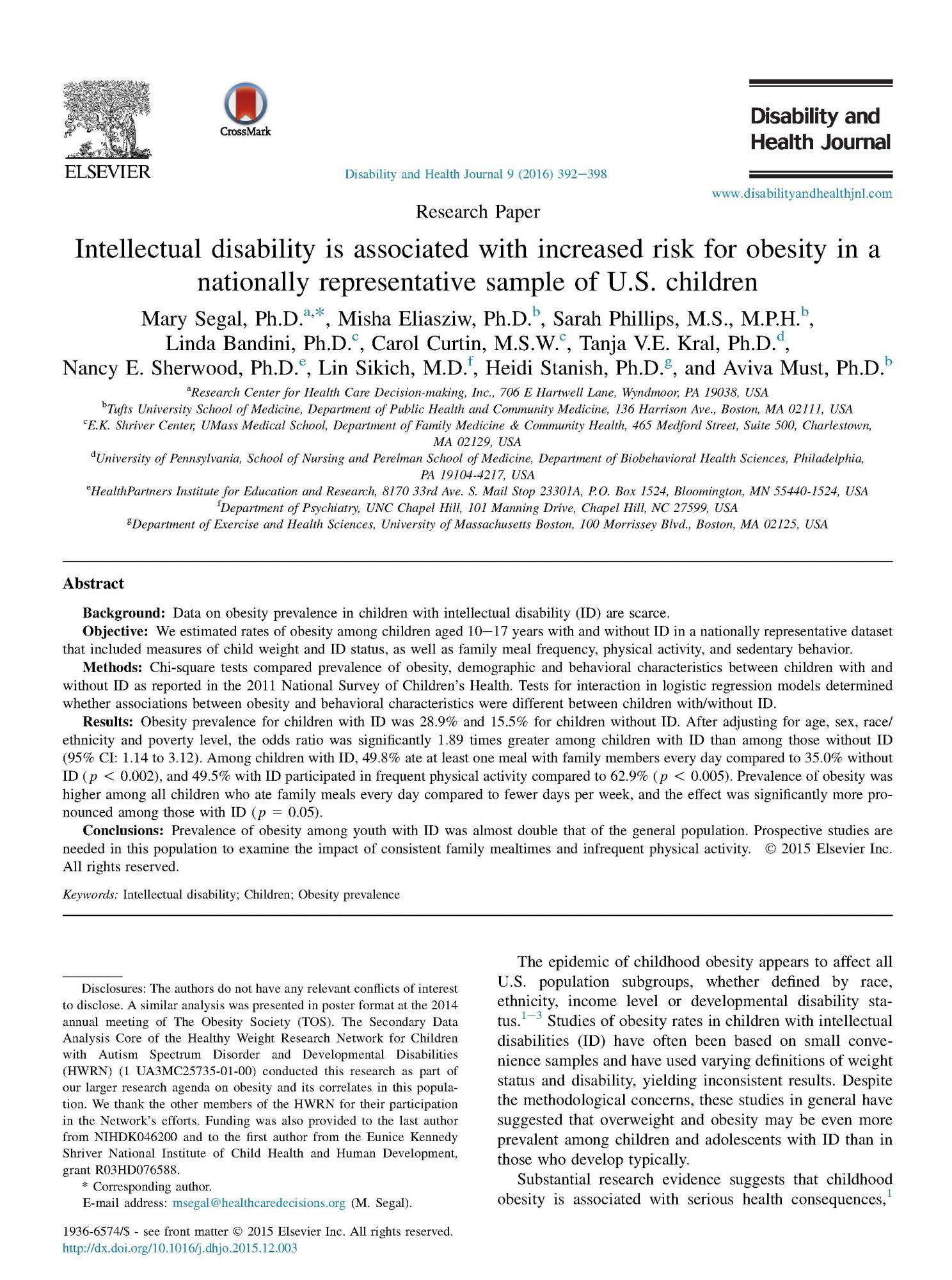This paper finds that obesity prevalence for children with intellectual disabilities (ID) was 28.9% and 15.5% for children without ID. After adjusting for age, sex, race/ethnicity and poverty level, the odds ratio was significantly 1.89 times greater among children with ID than among those without ID. Among children with ID, 49.8% ate at least one meal with family members every day compared to 35.0% without ID, and 49.5% with ID participated in frequent physical activity compared to 62.9%. Prevalence of obesity was higher among all children who ate family meals every day compared to fewer days per week, and the effect was significantly more pronounced among those with ID.
Journal Article
Intellectual disability is associated with increased risk for obesity in a nationally representative sample of U.S. children

